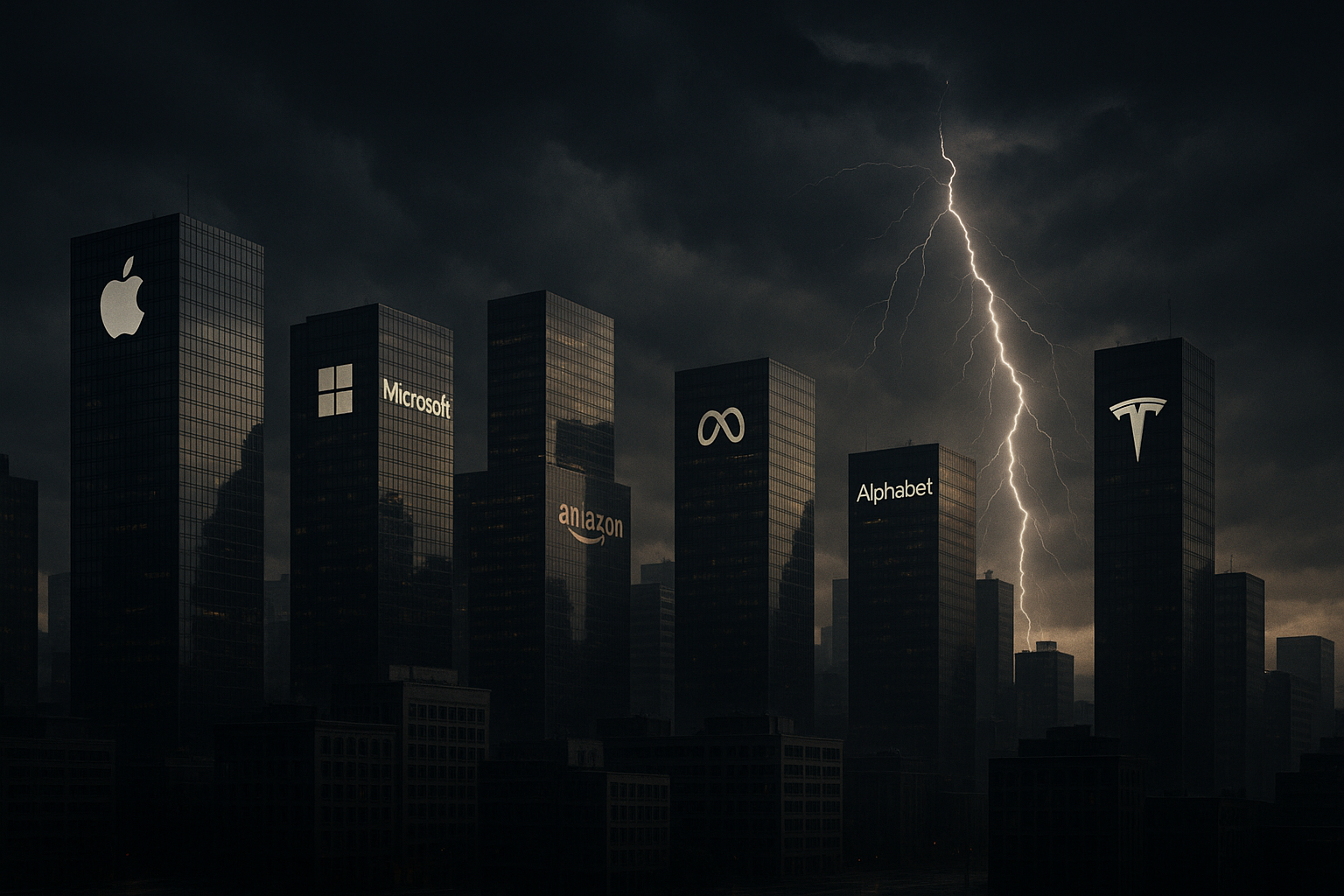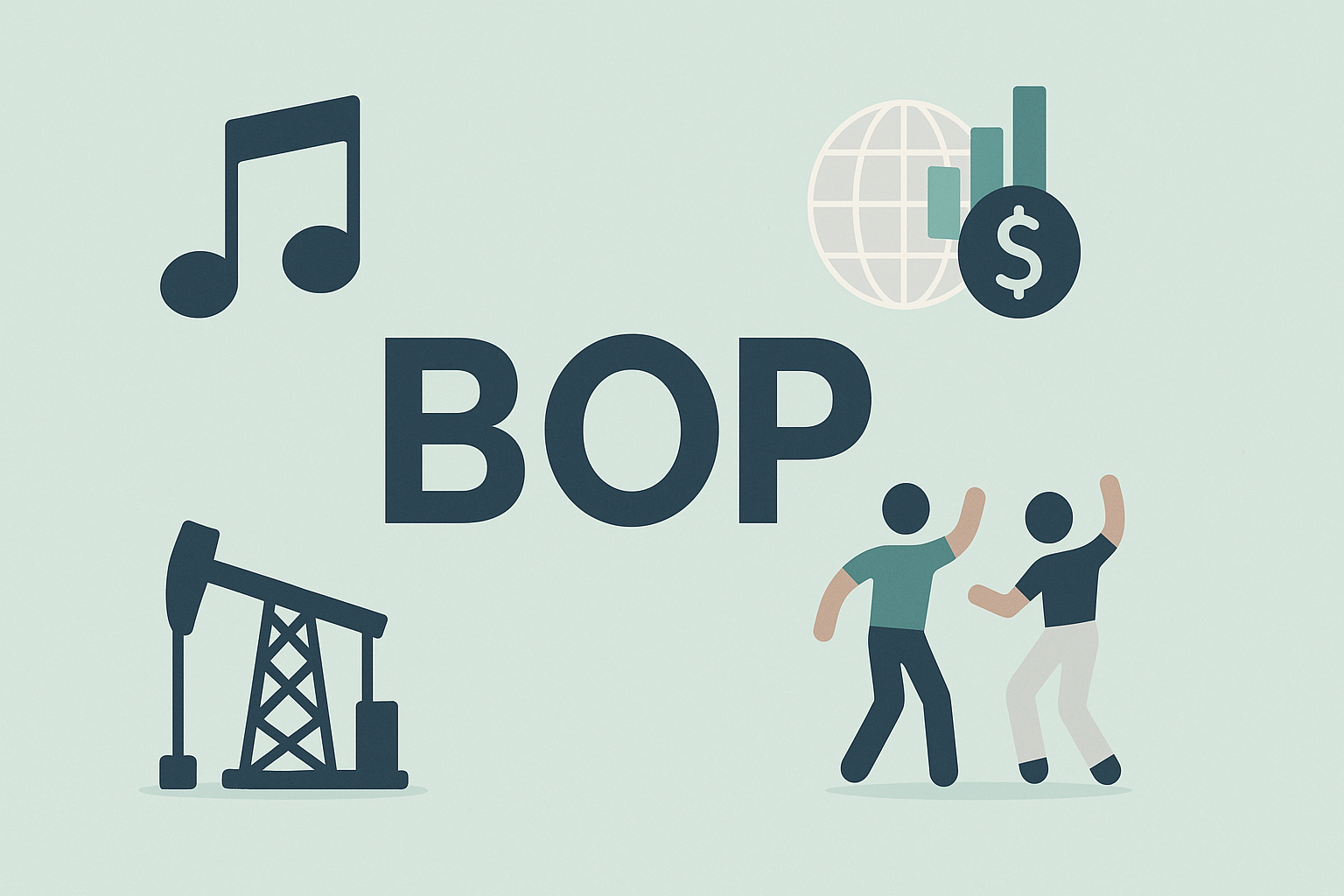The market's been on a tear lately—a relentless climb that's convincing investors that stocks only move in one direction. Up, up, and away. But I've seen this movie before, and I can tell you the ending isn't pretty.
Look, this isn't my first rodeo. Having witnessed the irrational exuberance of '99, the housing bubble of '07, and the pre-pandemic peak of early 2020, I've developed a sixth sense for when things are about to go sideways. And right now? My spidey senses are tingling something fierce.
Let's be real about market corrections. They aren't bugs in the system—they're features. Necessary resets that keep markets honest. The question isn't whether this bull will eventually tire out (it will), but which high-flying darlings will crash hardest when sentiment shifts.
The Magnificent Seven: Too Big for Their Britches
Have you noticed how just seven companies—Apple, Microsoft, Nvidia, Amazon, Meta, Alphabet, and Tesla—now account for nearly a third of the S&P 500's entire market cap? That's not a healthy, broad-based rally. That's a very narrow elevator that could quickly turn into a very crowded fire escape.
Nvidia particularly makes me nervous. When a chip company trades at 30+ times sales (not earnings, mind you, but SALES), we're in fantasyland. Back in my trading days, we had a name for stocks like that. We called them "pigs waiting for slaughter." Not very politically correct, I suppose, but descriptive.
The AI narrative has been so intoxicating that investors seem to have collective amnesia about the cyclical nature of the semiconductor industry. Competition is brutal, capital requirements enormous, and customer loyalty... well, let's just say it's fickle at best.
The "We'll Be Profitable Someday" Brigade
Remember when companies were expected to actually make money? Crazy concept, right?
The market is littered with "disruptive" companies burning cash like it's going out of style, yet trading at valuations that would make even the most optimistic venture capitalist blush. This works beautifully when money's cheap and flowing freely. It works considerably less well when rates stay higher for longer (which, despite what the Fed wants you to believe, seems increasingly likely).
Take the EV hopefuls chasing Tesla's taillights—Rivian, Lucid, and others. Great cars, perhaps. Great investments? I'm skeptical. Same goes for countless software-as-a-service companies trading at 15-20 times revenue with negative free cash flow as far as the spreadsheet can scroll.
Debt-Laden Zombies Shuffling Toward Doom
Then there's the walking dead—companies that gorged themselves on cheap debt during the easy-money era but haven't strengthened their underlying businesses. They've been playing financial musical chairs, using new debt to pay off old debt. What happens when the music stops?
I'm particularly concerned about commercial real estate operators facing refinancing in the next 12-24 months. Those empty office buildings in downtown metros? Someone owns that debt. (Spoiler alert: often it's regional banks, which could face renewed pressure if things go south.)
The Recession Canaries: Consumer Discretionary
Want to know when a recession is coming? Watch consumer discretionary stocks. They're typically the first to crater when household budgets tighten.
High-end retailers, home improvement chains, restaurants—these start showing weakness well before economists make recession calls. Companies like Restoration Hardware and Williams-Sonoma that rode the pandemic renovation wave could face particular challenges as consumers pull back.
And all that "revenge travel" fueling airline and hotel stocks? It won't last forever. Especially not with credit card balances where they are now.
SPAC Disasters: The Final Chapter
I'd be remiss not to mention the SPAC disasters still limping along in public markets. While the boom has cooled, many of these hastily-assembled businesses are trading at fractions of their debut prices—with plenty of room to fall further.
The companies that came public via SPAC with those laughably optimistic hockey-stick projections? Many will eventually trade below the cash on their balance sheets (assuming they haven't burned through it all already).
Could I Be Wrong?
Sure. Maybe AI really is as transformative as electricity. Maybe interest rates will plummet. Maybe productivity will surge while inflation vanishes into thin air.
Markets have a wonderful way of humbling those who speak with too much certainty. I've been wrong before—and I'll be wrong again.
But history tells us something important: the most spectacular market drops aren't logical—they're psychological. They happen not when news is worst, but when the gap between fantasy and reality becomes unbridgeable.
And right now? That gap looks Grand Canyon-wide to me.
When your Uber driver starts giving you stock tips and everyone at the country club is bragging about their tech portfolio... well, that's usually when I start checking where the emergency exits are located. Just saying.




